Women’s School Opens Up Possibilities for Marginalized Adult Students in Nepal
Although the caste system is officially banned in Nepal, its legacy and lingering prejudices have greatly damaged women of lower status over decades. The cumulative effects are daunting. Facing institutionalized inequalities that are nearly possible to overcome, women of oppressed ethnic groups often have lived outside village boundaries, and are prevented from walking through the neighborhoods of higher caste members to go to school – or to even draw water. Slowly, non-government programs are helping to change the future for marginalized women of all ages – and Global Volunteers is proud to support them in Kathmandu and neighboring Bhaktapur.
In a cozy classroom tucked into a commercial building housing a bank, a construction company and a small outpost for military officers, Global Volunteers Cindy Mitzen and Jean Weigel drill a multi-generational class of students on numbers, months of the year, and first aid – in easy English phrases. These basics form a foundation for raising mothers’ and women’s future potential in Kathmandu’s modernizing society.
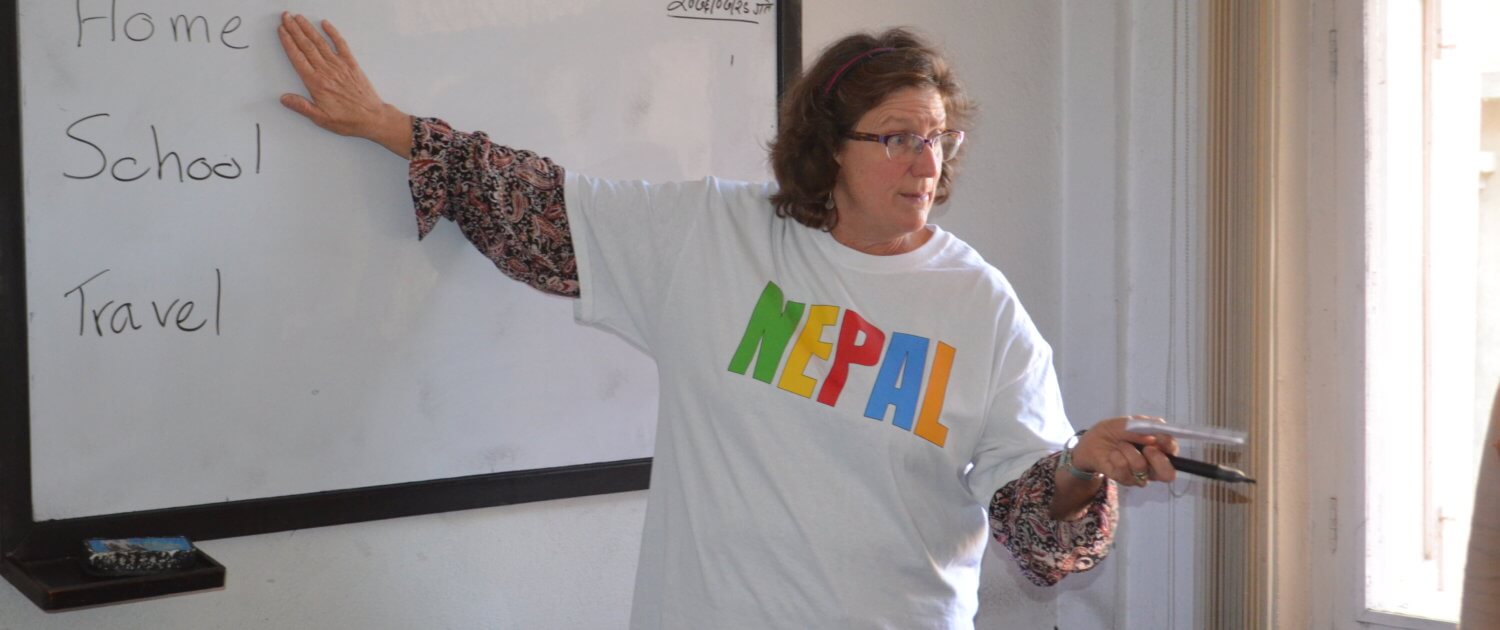
Jean and Cindy are serving at Astha Mahila Vidhyalaya Women’s School, a private, non-profit institution established in 2007 (Nepali year 2064 BS) through the gritty determination of a team of modest female visionaries. The students – 400 in all, ages 14 to 62 – come from distances as far as an hour walk away. Some of them are resuming an education they began as children, while most others are working their way through grades 1-8 toward graduation and, along the way, higher self-esteem and social recognition.
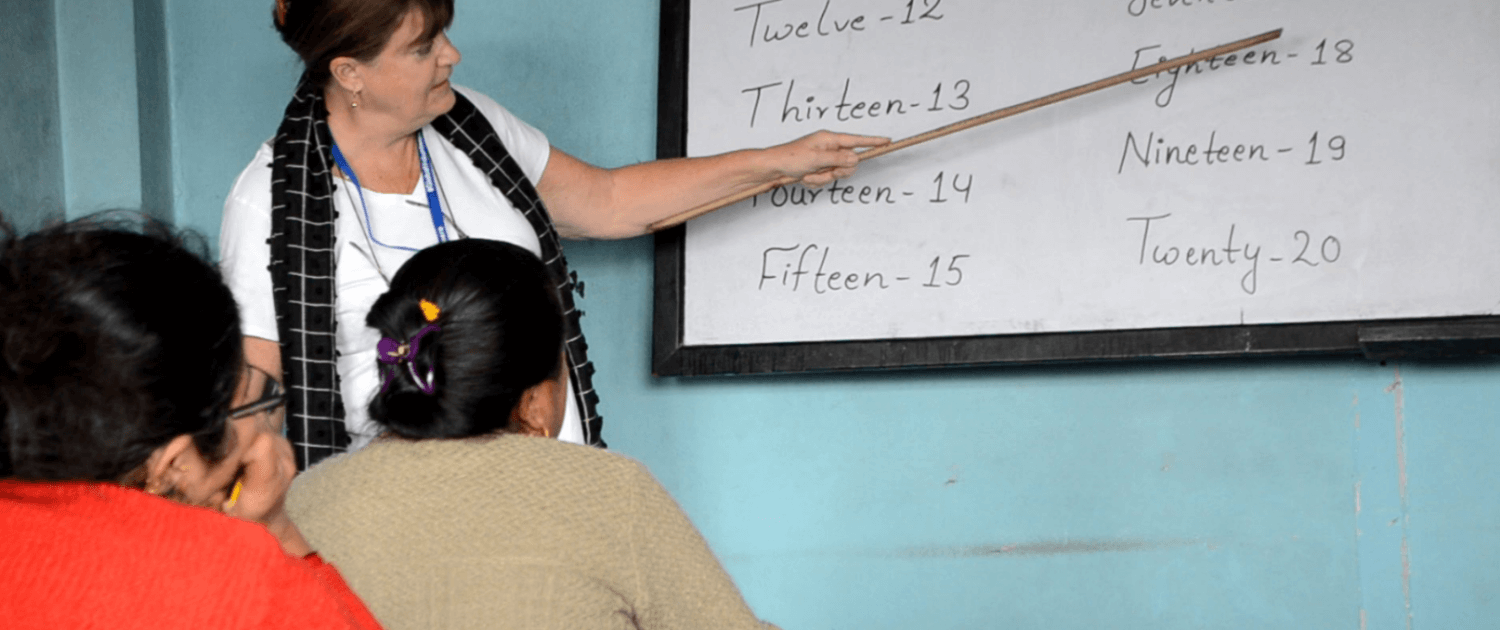
Neither of the two volunteers leading the English lesson is an experienced teacher. Jean is a pediatric nurse from Colorado, and Cindy is a school crossing guard from New Jersey. But, both women say they don’t feel handicapped in the classroom. “The women are here to listen to, and to speak English,” explains Jean. They also want to learn new skills – skills mothers and women need for their families. “So, we’re teaching them first aid and health care in English – with their teacher translating the English words they don’t know.” Jean said the women are mature, enthusiastic students. “They’re eager to learn practical information and to practice English conversation.”
Cindy said she never envisioned teaching English to women her age when she registered for the Nepal service program. “I didn’t know exactly what I’d be doing, but I didn’t imagine this,” she chuckled. “In Romania, I worked with babies and toddlers. This is very different! I’m working with women of all ages who are returning to school. Just reading and speaking English gives them the confidence to try it themselves.”
“With Global Volunteers, I’ve gotten to meet the women of Nepal, and gotten to know them, to help them, have fun and laugh – a lot. I didn’t watch the world go by from the window of a bus.”
Cindy Mitzen, repeat Global Volunteer
The school has become a necessity for those women who haven’t learned to read and write, and while classes are limited to subjects in grades 1-8, the plans are to extend instruction to grades 9-12 in coming year. The stated objectives are to provide a formal education and skills-based training , including technical and vocational subjects, to illiterate women, and to elevate their general literacy rates. Each student pays a modest tuition and the rest of the operating funds come from individual and institutional donations. The school receives no funding from the Nepali government.
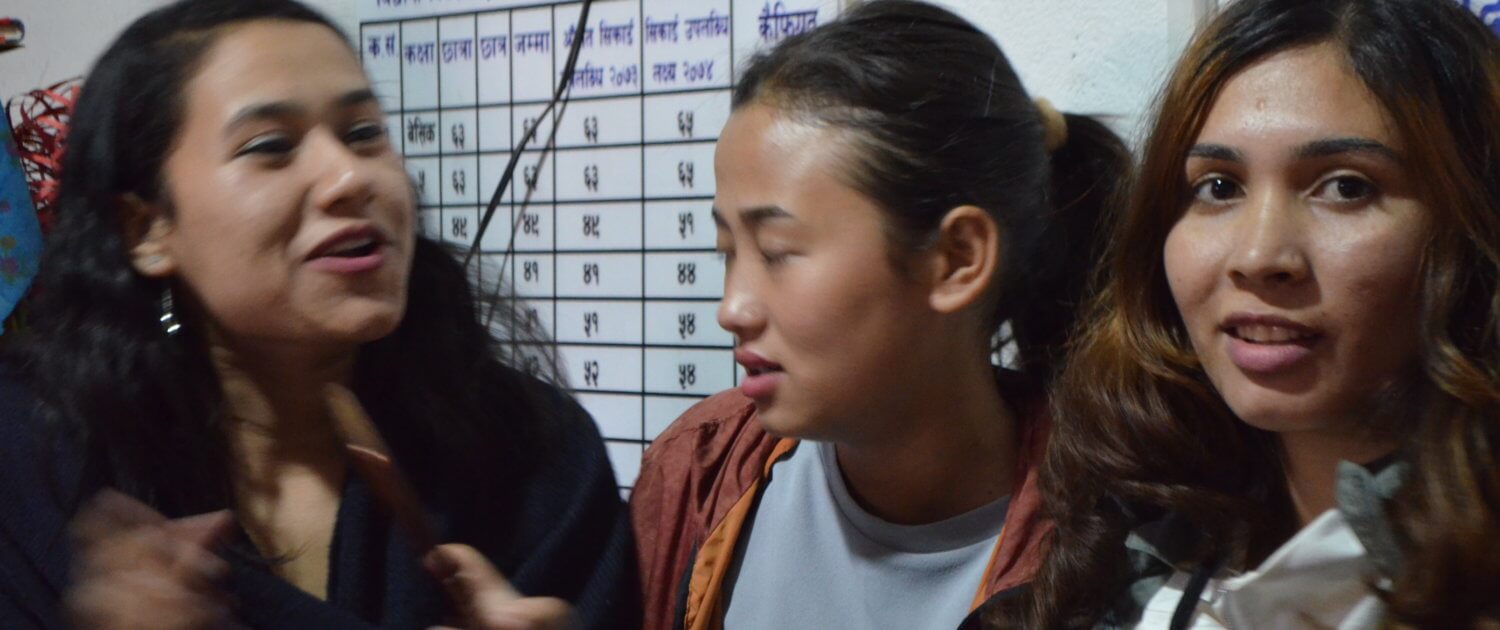
“I arrive at 6:00 AM every day,” explains Vice-principal Bina Deuja, “and rarely do I leave to go home before 6:00 in the evening.” Many of the the 11 teachers (all young 20-something women) are just as dedicated – working 10-hour days. “We’re committed to helping improve the conditions for women,” Bina continues. “Some of us have been here from the beginning (of the school), and we have given our lives to making this a safe and good school for women who have no other options to get an education.” The early years were very hard – before they had adequate classroom space, teaching materials or money to advertise the school’s existence. “That first graduating class, four years ago, was a major accomplishment for us,” Bina asserts. “Then we knew we could truly make a difference in women’s lives. We’ve had many success stories, and we’re never giving up!” In addition to managing the school’s staff and teaching Nepali language classes, she’s also the primary fundraiser – going out to potential benefactors for donations. The students and staff also sew nylon shopping bags and ceremonial scarves/shawls in the traditional woven red, black and white material for sale. “Maybe future Global Volunteers can help us plan new ways to raise money,” Bina suggests. Two teachers excitedly respond with the characteristic Nepali head-wobble: “Oh, yes, they can give us more ideas!”
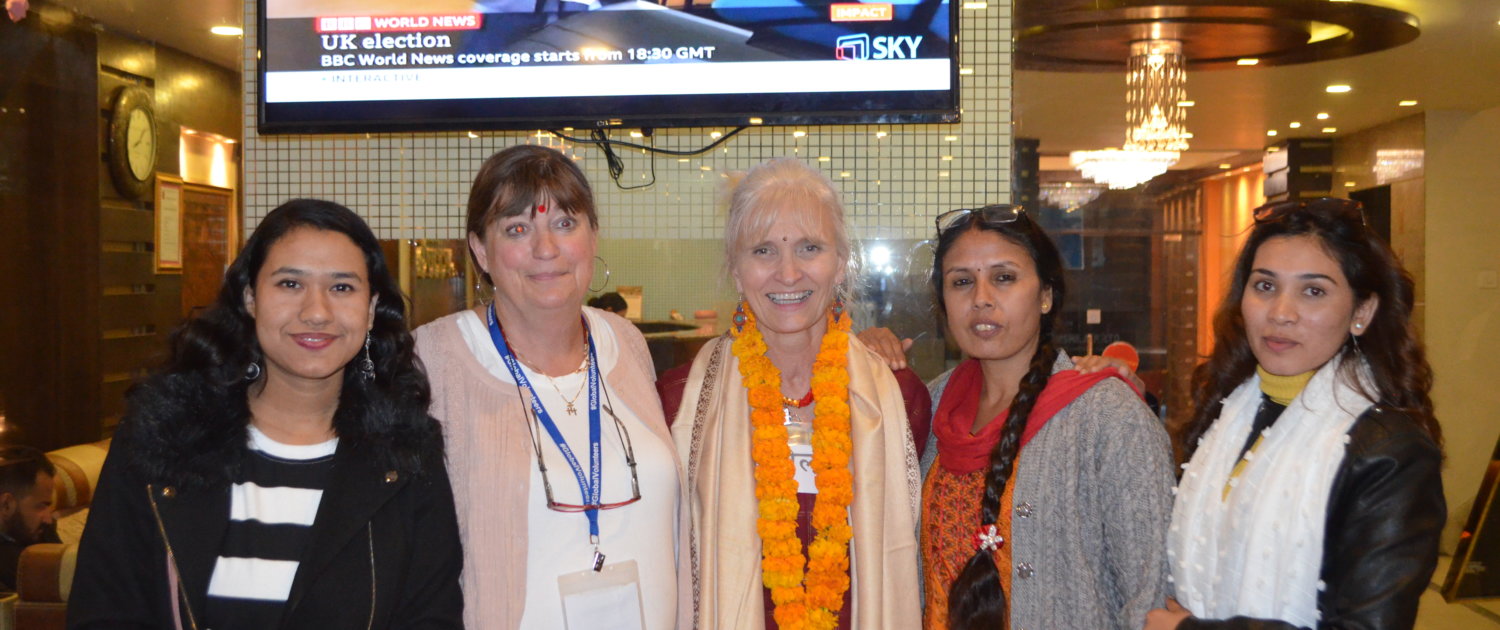
Bina says women of all ages and backgrounds are requested to share their skills and knowledge with her students on future service programs. Math, science, computers, nutrition, health and hygiene are subjects of great need – in addition to English instruction, she asserts. “Tell them they all are welcome – no matter what their skill is. We need much help to continue to improve our services to our students. Working with Global Volunteers gives us so much hope that we can continue to improve – and to change the world for women who had no future.”
Cindy concluded: “With Global Volunteers, I’ve gotten to meet the women of Nepal, and to get to know them, to help, have fun and laugh – a lot. I didn’t watch the world go by from the window of a bus.”

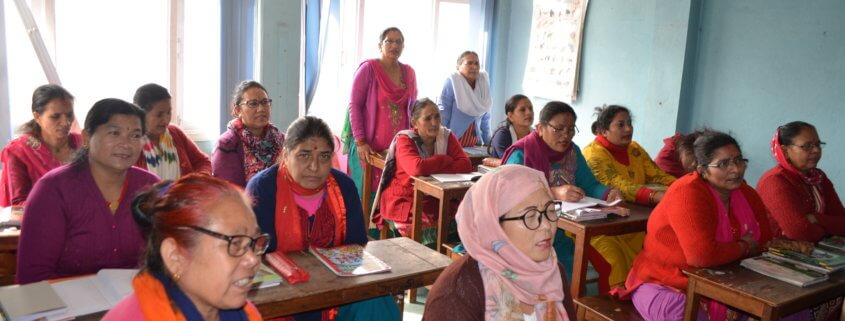


Leave a Reply
Want to join the discussion?Feel free to contribute!